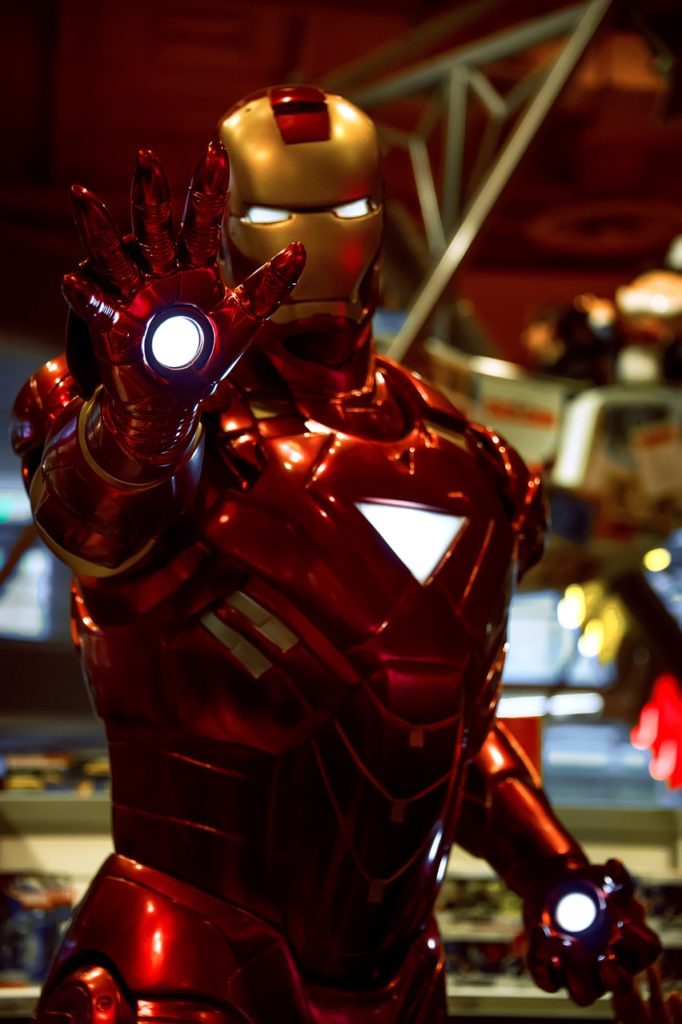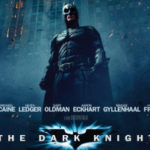Why Are Superhero Stories So Popular
 Superhero movies are all the rage in the entertainment industry these days. From blockbusters like The Avengers and Guardians of the Galaxy to lesser-known films such as Ant-Man, superheroes have stormed in and taken over Hollywood.
Superhero movies are all the rage in the entertainment industry these days. From blockbusters like The Avengers and Guardians of the Galaxy to lesser-known films such as Ant-Man, superheroes have stormed in and taken over Hollywood.
Ten years ago, such stories were scattered trees. Now, thanks in large part to the success of the Marvel film franchise, the scattered trees have become a forest. A thriving forest that seems unlikely to die anytime soon.
Marvel’s Phase 3 is set to kick off in smashing style with the release of Captain America: Civil War in May, followed by ten additional movies over the next four years. Meanwhile, DC, desperately trying to keep pace, has some major offerings of its own, led by Batman v. Superman, Suicide Squad, and Wonder Woman. Several TV shows have also jumped aboard the superhero bandwagon.
The trend is here to stay for the foreseeable future. Which begs the question: why are superhero stories so popular? What makes them capture our attention and draw crowds of fans to the theaters like dwarves flocking to a barbecue party?
I see five main forces driving this trend.
1. Wish-fulfillment
Let’s admit it. Being able to cling to walls and ceilings like Spiderman, zip around in a self-designed suit like Tony Stark, or summon lightning like Thor would be AWESOME!
Defeating an army of Chitauri. Saving your city from destruction. Thwarting the efforts of an obsessed pseudo-Nazi. Swinging like a modern-day Tarzan through the skyscrapers of New York City. How cool would that be?
Superhero stories are filled to the brim with amazing exploits that while unrealistic at times, still echo with the sound of what it means to be human. There are plenty of things in life we wish we could have, or do, but we know it won’t happen. Tales featuring extraordinary characters doing amazing things allow us a way to fill that gap.
2. Vicarious living
In a sense, books and movies are escapist because they allow us freedom to let our imaginations soar, unshackled by the realities of life and science. We form a connection with the characters, and it’s as if we slip into their skin and make their experiences our own.
Through the magic of storytelling, we grieve in their pain, sense their dread, rejoice in their triumphs, revel in their escapades. We relate to their ups and downs on a basic level. We see fragments of our lives played out in their experiences.
To paraphrase George R.R. Martin, “Viewers live a thousand lives.”
 3. Adventure and adrenaline
3. Adventure and adrenaline
Today’s culture demands bigger and better. More destruction, more action, more pulse-pounding moments. While it can quickly become overkill, superhero movies, with their plethora of godlike characters, massive battles, advanced technology, and are primed to fill this demand.
For the most part, they seem bent on outdoing the last movie. People keep watching for the epicness. The movies keep delivering. Everybody’s happy.
4. Cross-generational appeal
Unlike certain genres, superhero stories appeal to a wide audience. Many adults undoubtedly remember reading comic books as kids, and now they get to experience those stories in the sensory-stimulating environment of the theater. The characters are three-dimensional, animated from their static existence on the page of a comic book.
Of course, kids of all ages adore superheroes. They’re the good guys who fight the villain, do incredible things, save the day. What’s not to love from a child’s view of the world?
5. The ordinary in the extraordinary
With the exception of some key characters, most superheroes are (or were) average Joes and Jills. Nothing special or intrinsically amazing about them. No inherent powers or abilities. Consider Steve Rogers. A skinny kid from Brooklyn who looks vulnerable to a strong gust of wind. He undergoes quite the change, and now as Captain America is anything but ordinary.
This ties back to wish-fulfillment and vicarious living. Realistically, none of us will undergo such a startling transformation. Yet because of our connection with the fictional Steve Rogers, we get a small taste of what it would be like to go from ordinary to extraordinary. That feeling intersects with the ability to have our fantasies brought to life, and voila. We have a character we relate to, whose story we want to follow.
Another aspect at work here is the powers, the plots, the people all taking place in our universe. In familiar places. The new, different side of reality brings up the question “what if this actually happened, and furthermore, what if it impacted our world?” The answer brings an intersection of science and fiction, reality and imagination that makes the stories vibrate with life.
Why do you think superhero movies have gained such popularity?









































From my perspective, it started with 9/11 and the era of terrorism has only exacerbated the fear and helplessness that most people feel. Superheroes have always been the geek’s vicarious revenge on the jocks who picked on them in school but now they’re also the answer for this terrifying modern world we live in.
I personally see the mainstream superhero phenomenon as evidence of society’s lack of maturity, particularly with males. Look at the video games industry. What dominates? A bunch of razzle-dazzle first-person shooters. This ubiquitous virtual heroism can be a quick asthma inhaler when life gets you out of breath. That’s not to say that superhero stories are simplistic and childish, but at the end of the day, they’re superheroes and villains. In the real world, the bad guys are winning more and more. In comic books and pretty much every month now on the big screen, the bad guy du jour gets what’s coming.
I would argue that the “wish fulfillment” also has its roots in our innate knowledge that we were created to be so much more than we are – that we were created to be sinless, perfect immortals.
Hmmm. I can’t say I particularly disagree with any of your arguments, but I think you oversimplify the superhero genre. I suppose you’re specifically targeting “mainstream” superheroes. And I noticed you didn’t mention the X-Men, which is my favorite of them all. Still, the X-Men movie franchise is doing well, and it doesn’t really fit ANY of those categories.
Wish-fulfillment? Not all the powers are ones you want, and that goes double for the comic strips. Vicarious living? Some, especially with the simplified children’s cartoons. Still, again because the powers can have annoying side effects and ugly histories, you don’t always want to live those lives. Adventure and adrenaline? It sells. That isn’t specifically a comic book movie feature, and some of the better ones have featured rather nuanced storylines, while STILL kicking butt.
Cross-generational appeal? Again, here I’m going to branch out a little more. Look, a lot of mainline speculative fiction has cross-generational appeal. It NEEDS to be shaped that way to make money. It also seems that in particular you’re choosing movies. Even some of the comic book TV shows have a lot more stuff going on, and aren’t really aimed at the kids (Arrow, The Flash, etc). The ordinary in the extraordinary can again be applied to Star Wars or other speculative fiction shows. It’s not at all exclusive to superheroes.
That isn’t to say you haven’t given reasons that superhero MOVIES are popular (although again, I’d point out that some go deeper). However, your blog post is titled Superhero Stories — and that’s a much broader category. I’m not a fan of lumping superhero movies in with superhero television shows, when they are two different animals in terms of narrative and storytelling ability.
I would say there are plenty of producers looking to cash in on the superhero bandwagon and make big shoot-em-ups with lots of glitz and wish fulfillment. It’s money, and there’s an audience. However, especially on the small screen, others are discovering the potency of superpowers as a new way to tell stories. It can become the ‘new urban fantasy’ — adding superpowers to enhance existing human conflicts (ie, some X-Men movies, Jessica Jones, Daredevil, SOME parts of Arrow, etc). And no, the bad guys don’t always get what’s coming.
They are popular because mostly because you don’t need to care about plot or characterization or even logic when making a movie. You just need explosions, cgi, and fancy powers. They are the latest “gimmick” movies, like disaster films.
I mean, if you like comics many of the popular movies are really, really bad. Not much of what makes them great shines through: no social commentary, no camp sensibility, no sense of growing with your favorite characters, no side stories. No transgressiveness, either-people forget that comics were a legitimately transgressive art form.
Modern comic book movies are just worse versions of Wuxia flicks. Same problems: stock plots, focus on spectacular fight scenes over internal logic, paper characters, etc.
I agree with all your reasons, but I thought of one other. A big reason why superhero movies have become more popular is because we have reached a point in technology where they are possible. This began with Spiderman in 2002. Before the advent of CGI, there was only so much that could feasibly be portrayed on the screen. (Don’t get me wrong, Richard Donner made an amazingly timeless Superman movie in 1978, which still holds up today, but it doesn’t have the epic scope that is possible nowdays).
Great point, Adam, and it makes perfect sense. Thanks for adding that to the list. 🙂